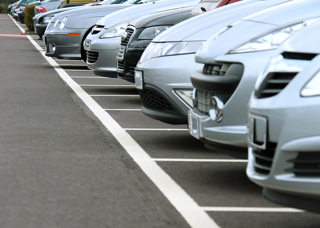HMRC says it will publish official company car tax guidance to reflect clarification given to Fleet News in light of the coronavirus lockdown.
Many businesses provide company cars to employees who have been either furloughed or restricted to staying at home and only undertaking essential travel.
In many cases their company car will be parked outside unused and some employers are even looking to SORN the vehicle as some will have no road tax, MOT or insurance during the ‘lockdown’ period.
Currently, unless a company car is unavailable for 30 consecutive days, and is available to the same employee before and after the period of unavailability, it is liable to benefit-in-kind (BIK) tax during the whole period.
HMRC told Fleet News that the benefit charge applies where a car is made available for private use, whether or not it is so used.
For example, the spokesman said: “A car kept on an employee’s driveway during a period of furlough would still be considered to be made available. Neither would we accept a SORN declaration as proof of unavailability.
“Ordinarily, we would expect that the car is handed back to the employer so that it cannot be used. However, we recognise that under the current circumstances it may not be possible to hand the car itself back, we would accept that where all the keys (or tabs) are in possession of the employer, and the employee does not have the authority to request the keys are returned to them, the car would be unavailable.”
However, fleet decision-makers have contacted Fleet News saying local tax officials were unaware of measures to allow the handing back of a company car during lockdown.
HMRC has now confirmed that official guidance will be updated soon to reflect the coronavirus changes.
The Association of Fleet Professionals (AFP) says that handing back of company car and van keys or fobs to employers in order to avoid BIK taxation during the coronavirus lockdown needs careful management.
“During lockdown, there are many people facing potential hardship and being able to avoid benefit-in-kind could make a genuine difference to some," said AFP co-chair Caroline Sandall. "While it has been established in principle with HMRC that key handback is a definite option, there are some points on which we remain unclear.
“The main immediate problem that needs to be avoided is employees simply pushing their keys back through the letterboxes of unattended offices, something of which we have heard several reports. For your employer and HMRC, this doesn’t create an audit trail showing when the key was returned or to who, which is something that may need to be ultimately established to the satisfaction of either or both.
“It also creates a possible fleet management problem for the future. If you run a single or limited badge fleet, you could find yourself with a pile of identical keys and no means of working out how to link them to a particular vehicle. Plus, there is quite a high probability that keys will be lost and replacing them is always expensive.”
Sandall says that there also needed to be questions considered about where company cars were being left while they are being unused.
“There is a health and safety issue here," continued Sandall. "Clearly, no employee should be leaving their car or van on the road if they don’t have the keys because they may need to move it in an emergency. Even if it is parked on their drive, they may still require urgent access.
“If the vehicle is being parked or stored elsewhere, then security becomes a concern, as does its ongoing condition. There is certainly an argument for the car or van to be properly inspected before it is accepted as being handed back, and that regular checks afterwards are needed.
“Finally, if the crisis situation persists for some months, as seems not unlikely, then you should consider the usual issues surrounding long-term vehicle storage, from flat batteries to seized brakes. All of these matters should be examined by fleet managers.”
The AFP has been discussing the issue of company car tax during the lockdown with interested parties.“While we definitely believe that employers should be facilitating key handback for those who want to take that option, it is a subject that requires careful management and potentially, further guidance from HMRC, including questions around related areas such as benefit-in-kind on fuel," said Sandall.
“Certainly, it would be useful to be having a dialogue with HMRC to make certain matters clear so that compliant procedures can be established by fleets. We’re happy to act as the lead body on this subject in conversations with the authorities. However, we are also sensitive to the fact that the authorities have more important matters to which they are attending.”
If you’re a fleet decision-maker, please take three minutes to take our coronavirus survey.
For the latest coronavirus advice for fleet operators, click here.
























Keith Wall - 07/04/2020 12:02
I think company car drivers tend to be more affluent than many and should not expect a reduction in benefit in kind during the crisis. Everyone else has to continue to bear vehicle costs and the government is not there to finance every small loss but to shield us from catastrophe. Try looking out and not in, don't behave like a professional footballer.